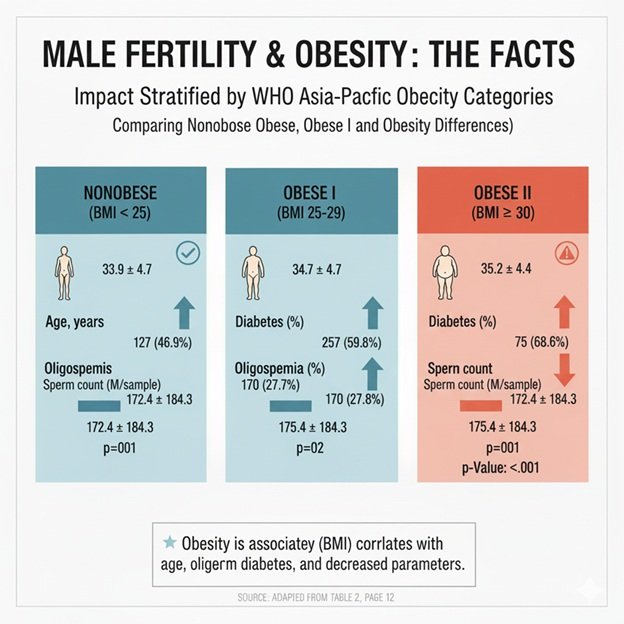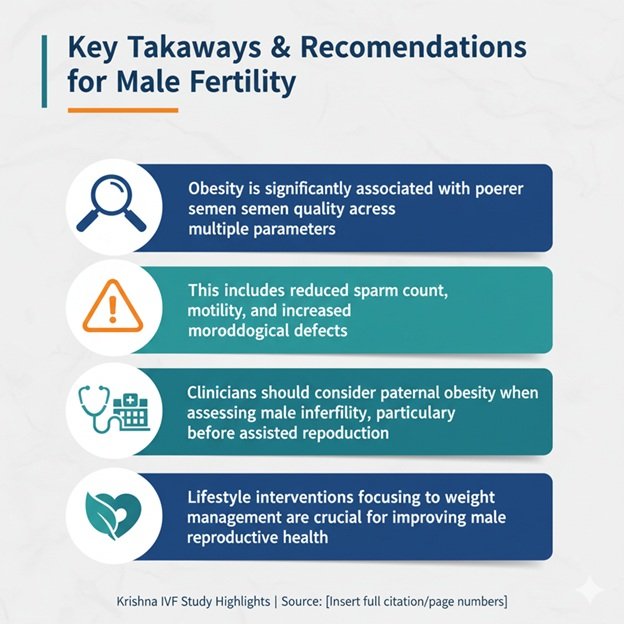Male Fertility & Obesity: Insights from Krishna IVF by Dr G. A. Ramaraju
Obesity, a rapidly growing global health concern, not only affects the heart and metabolism but also has a profound impact on male reproductive health. The pioneering study led by Dr G. A. Ramaraju at Krishna IVF Clinic in India has unveiled significant insights on how excess weight impairs sperm quality and fertility parameters, providing a new level of understanding in this field.
Groundbreaking Research Highlights
Analysing 1,285 men at Krishna IVF using advanced computer-aided sperm analysis (CASA), Dr Ramaraju’s team discovered that men with higher BMI – classified as Obese II (BMI ≥ 30)- have markedly worse sperm parameters than nonobese men.

Obese men were older, more likely to have diabetes (nearly 69%), and significantly more likely to suffer from low sperm count (oligospermia) and poor sperm movement (asthenospermia). Obese men also had higher rates of abnormal sperm morphology, including thin and pyriform heads, which can impair fertilisation.
Mechanisms and Implications
Obesity leads to hormonal imbalances, raising estrogen and lowering testosterone, which are critical for healthy sperm production: increased leptin, oxidative stress, and toxin buildup in obese men further damage sperm cells. Remarkably, the adverse effects were especially pronounced in men who also had diabetes.
Dr Ramaraju’s research revealed that the harmful influence of obesity may even affect future generations through alterations in the sperm epigenome. With male factors contributing to nearly half of all infertility cases, these findings have wide-reaching implications for couples planning a family.

Hope through Lifestyle Change
There’s promising news—Dr. Ramaraju’s team found that interventions such as weight loss, regular exercise, healthy dieting, and diabetes management can lead to marked improvements in sperm parameters and hormone balance. Even severe cases benefited from advanced medical procedures, such as bariatric surgery, offering a ray of hope for those struggling with obesity-related fertility issues.
The Path Forward
The Krishna IVF study underscores the crucial role of paternal health in fertility treatments. Men are not just bystanders, but active participants in the journey towards parenthood.
They are encouraged to seek professional reproductive evaluations and adopt healthier lifestyles for the sake of their own well-being and that of their future children.
Reference :
Ramaraju, G.A., Teppala, S., Prathigudupu, K., Kalagara, S., Thota, M., Kota, R., & Cheemakurthi, R. (2017). Association between obesity and sperm quality. Andrologia, e12888. https://doi.org/10.1111/and.12888
